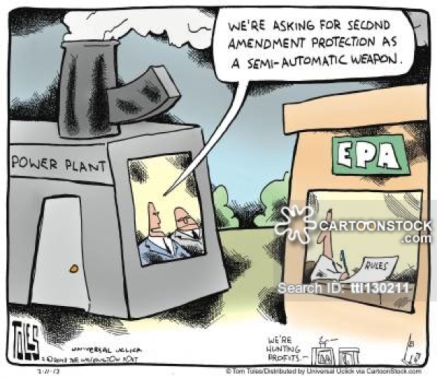 By Gwen Wei
By Gwen Wei
Five days after the inauguration of President Donald J. Trump, his administration officially instructed the Environmental Protection Agency (“EPA”) to delete all references to climate change from the agency’s website.
The demand generated an instant outcry: from the media, members of the scientific community, and believers in global warming at large. This request threatened access to not only general agency information, but significant global warming research and detailed data on emissions. It also cemented general fears, originating from as early as November 2016, that the new administration might seek to curb agency actions that could put the government at odds with the energy industry lobby and pro-drilling think tanks. Acting in response to those concerns, both archivists at the Internet Archive and researchers at the University of Toronto in Canada began to make backup copies of the EPA’s environmental data in December. Fearing takedown claims from the new administration, the Internet Archive went a step further, and announced plans to move a copy of its archive to Canada.
In all the pandemonium, it’s worth re-noting: neither the Obama nor the Trump administration has a legal claim upon the EPA’s data. The Copyright Act of 1976, codified at 17 U.S.C. § 105, denies the federal government the right to own copyrights; any copyrightable works created by the federal government are by default part of the public domain.
Even assuming that the administration could wrangle a claim to the data — if independent contractors who create works for the EPA, for instance, keep the copyrights to their work, which could be leveraged on the government’s behalf — the Internet Archive has an obvious and strong fair use claim in the purpose of their use, the nature of the work, the amount used, and the market impact. As scholars have noted, “[v]irtually everyone views preservation copying as socially beneficial. It is consistent with the Constitutional purposes for copyright since the preservation of printed knowledge is necessary for the progress of science and the useful arts.” Because the nature of the work is of significant public interest, and because a noncommercial work cannot argue for market impact, Internet Archive has a very compelling argument that archiving the EPA’s climate change data constitutes fair use.
The Internet Archive may also have a tenuous argument for the right to archive the material in and of itself. 17 U.S.C. § 108 states that libraries and archives may make up to three copies of a work for preservation purposes, regardless of ownership. This, however, is subject to more complication: such copies are not distributed digitally, nor made available to the public outside the archive’s physical premises. Little case law yet exists to suggest how a court is likely to approach the archiving of website “snapshots” — that is to say, the website where captured at specific points in time. Further, a Senate report on the provision in 1998 defined libraries and archives as “physical premises in which collections of information may be used by researchers and other members of the public.” While the Copyright Office is still seeking to account for the evolution of technology in Section 108, arguing for a ‘right to archive’ is likely to remain the weaker position to take.
Even without claims from the federal government, concerns linger regarding the EPA’s future relationship with environmental research. Recent developments have suggested that Scott Pruitt, the EPA’s newly-appointed head, intends to cut funding to environmental programs and steer the onus of running such programs onto state governments. But this, too, would be troubling news for scientists on both monetary and educational levels. While the federal government has a severely limited right to own intellectual property, states enjoy a certain level of intellectual property protection, with the right to withhold such property from the public. This has already raised previous complications for individuals seeking the release of state government data. Allowing state governments to claim ownership of scientific data could to bring a whole new level of difficulty to keeping government discoveries in the public domain.
The new administration’s seen more than its share of explosions since the inauguration, and for good reason. But the White House’s coming, inevitable, reaction to loss of control over agency data in particular may foreshadow its future positions on public access to information. This reaction should be watched with no less attention than any other controversy.
Image Source